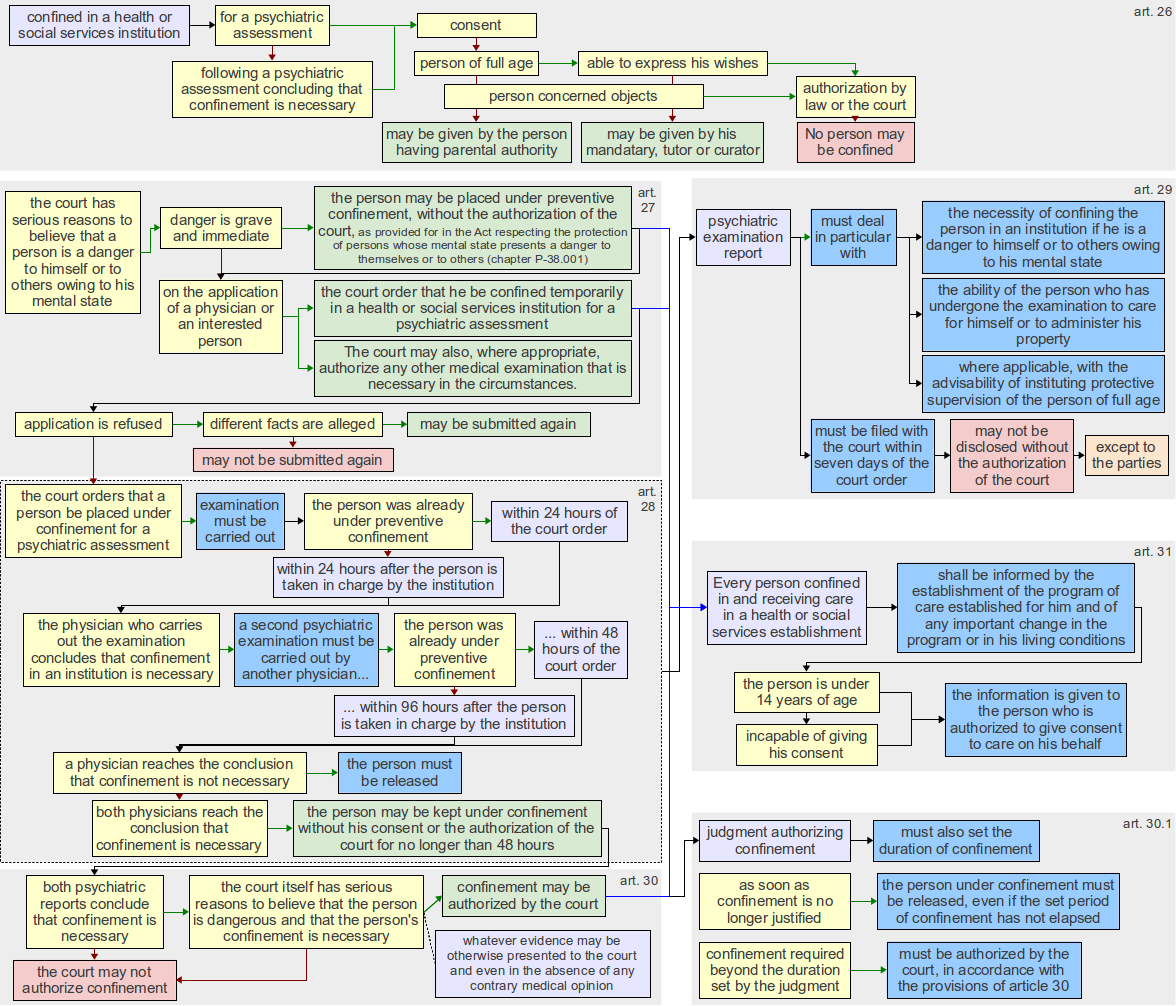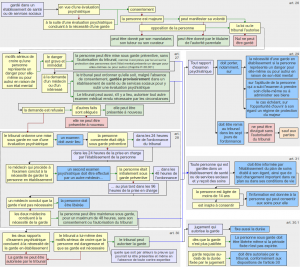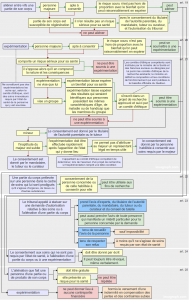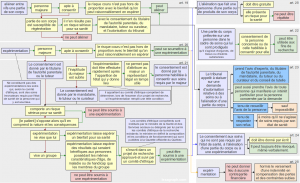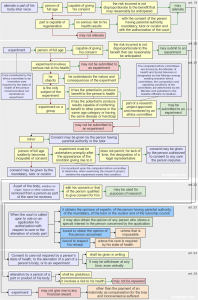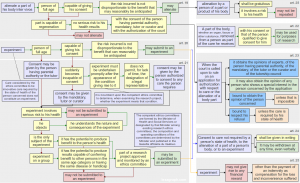English follows.
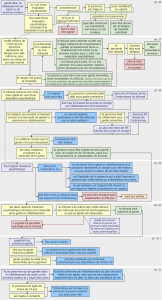 La section sur la garde en établissement et les évaluations psychiatriques s’appliquent dans le cas où une personne (habituallement majeure) est emmenée dans un établissement pour y recevoir des soins psychiatriques, malgré son désaccord. Pour la protection du patient et du public, le code civil va permettre, sous certaines conditions, à l’établissement de garder le patient, même contre son gré.
La section sur la garde en établissement et les évaluations psychiatriques s’appliquent dans le cas où une personne (habituallement majeure) est emmenée dans un établissement pour y recevoir des soins psychiatriques, malgré son désaccord. Pour la protection du patient et du public, le code civil va permettre, sous certaines conditions, à l’établissement de garder le patient, même contre son gré.
Pour ce faire, le patient doit représenter un danger pour lui-même ou pour autrui. Une garde préventie est permise si le danger est grave et imminent, mais l’autorisation du tribunal sera nécessaire pour lui faire subir un examen psychiatrique.
Les articles 26 à 31 prévoient les règles relatives à la garde, à l’examen, ainsi qu’aux rapports d’évaluation psychiatriques. Ci-dessous, la version réarrangée.
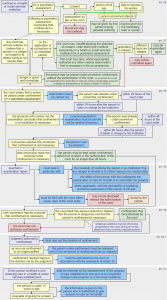 The section on confinement and psych evaluations applies when a person (usually of full age) is brought into a institution to receive psychiatric care, in spite of his opposition. To protect the patient and the public, the Civil code will allow, under certain conditions, the institution to keep the patient, even against his will.
The section on confinement and psych evaluations applies when a person (usually of full age) is brought into a institution to receive psychiatric care, in spite of his opposition. To protect the patient and the public, the Civil code will allow, under certain conditions, the institution to keep the patient, even against his will.
To do so, the patient must be a danger to himself or others. Preventive confinement is permitted if the danger is serious and imminent, but authorisation of the court will be necessary to make him undergo a psychiatric assessment.
Articles 26 to 31 sets out the rules applicable to confinement, assessment, and psych assessment reports. Below is the re-arranged version.
